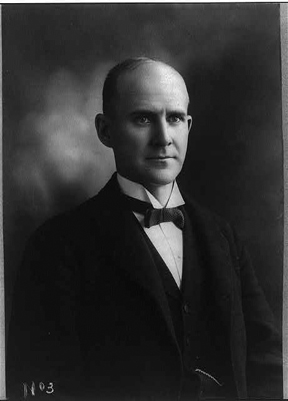 On Monday, we are celebrating Labor Day. That means there
will not be any mail delivery on Monday. The day that is full of backyard
barbeques, retail sales and is the official end of wearing white for the year,
had a unique beginning that has more to do with mail delivery than you may
know. How did we get this national holiday? In the midst of the industrial age,
labor unions began to organize and flex their collective muscle. Labor Day was
made an official U.S. holiday in 1894 when Grover Cleveland signed it into law
six days after the end of the Pullman Strike. This was a bloody conflict
involving the Pullman Palace Car Company, a manufacturer of railway cars in
Chicago, and their workforce.
On Monday, we are celebrating Labor Day. That means there
will not be any mail delivery on Monday. The day that is full of backyard
barbeques, retail sales and is the official end of wearing white for the year,
had a unique beginning that has more to do with mail delivery than you may
know. How did we get this national holiday? In the midst of the industrial age,
labor unions began to organize and flex their collective muscle. Labor Day was
made an official U.S. holiday in 1894 when Grover Cleveland signed it into law
six days after the end of the Pullman Strike. This was a bloody conflict
involving the Pullman Palace Car Company, a manufacturer of railway cars in
Chicago, and their workforce.
Pullman had created a company city where its unskilled
workers and their families lived. Pullman had reduced wages in the wake of the
economic depression known as the Panic of 1893. However, they did not reduce
the rent that workers paid to live in the tenements of Pullman City. Union activist
Eugene Debs organized many of the Pullman workers around the American Railway
Union (ARU). When Pullman refused to negotiate with the ARU, Debs called for a
strike. ARU members refused to allow any train with a Pullman car to travel on
the tracks in which they were working. 250,000 members of the ARU took part in
the boycott and effectively shut down rail traffic across the U.S. In a day
when the traveling of any distance happened on a train, this was significant.
Not only did the railroads carry people across the country, they also moved
products such as food, clothing, coal, and money. Anything that had to
do with the staples of life was moved aboard a train.That included the U.S. mail.
To combat this work stoppage, the railroads hired
strikebreakers to take the jobs of the striking ARU members. Violence broke
out. Union rallies turned into mob scenes where buildings were torched and
locomotives were derailed. Strikebreakers were threatened, injured and killed.
The railroads fired and blacklisted the strikers. President Cleveland used the
stoppage of mail as a means to take action against the strikers. He sent U.S.
Marshals and the U.S. Army to put down the strike and open the rail lines.
Cleveland also took legal action through the attorney general against Debs and the
union organizers if they did not stop the strike. Debs refused and called on
all other labor unions to join the strike to shut down all commerce across the
country. He was arrested and charged with failure to comply with the federal
injunction. This had a polarizing impact on the public. Some sided with the
union, claiming it was the right of the workers to dissent, especially after
the federal government had intervened with force. Some sided with the railroads
claiming that no disgruntled group had the right to shut down commerce.
Townspeople found themselves at odds with each other. Shop owners, church
leaders, farmers, newspaper reporters - all took sides.
In the summer of 1894, the strike finally fell apart and
railway traffic began to move again. There was talk that there needed to be
some sort of national holiday where opposing sides could come together and the
wounds of the strike could begin to heal. Many thought that the feds had
grossly overstepped in putting down the unions and there needed to be some sort
of contrition on the part of the president. It had been argued that labor
needed a day to show their solidarity to the public. Some states had celebrated a
Labor Day for a decade. So the Congress and President Cleveland hastily signed
a law proclaiming the first Monday of September to be a national holiday where
work at federal offices would cease to honor the American worker. Of course
that meant that the mail would not be delivered, the very thing that landed
Debs in prison.
If you
are like me, on Monday I will forget that my postman is not delivering the mail
and I will go out and open my mailbox in search of the day’s deliveries. For a
moment, standing in front of my empty mailbox, I will remember the irony of the
day that came about when a man defied the federal government and stopped the
flow of mail.